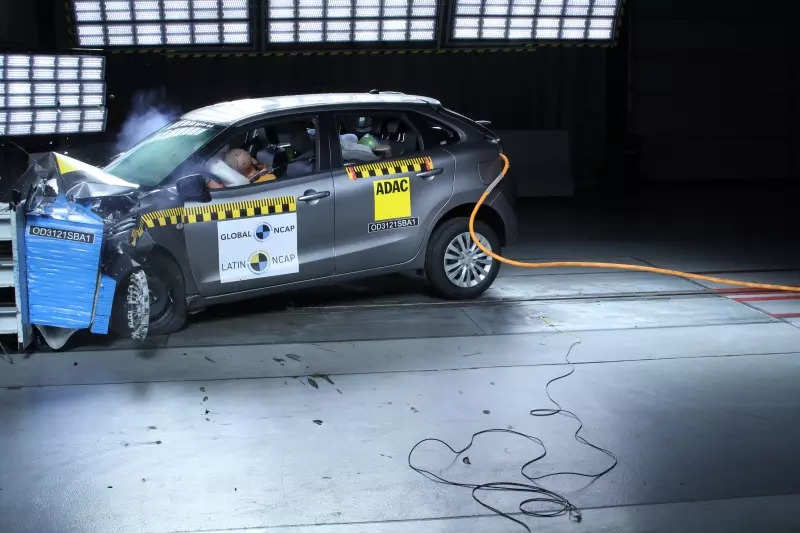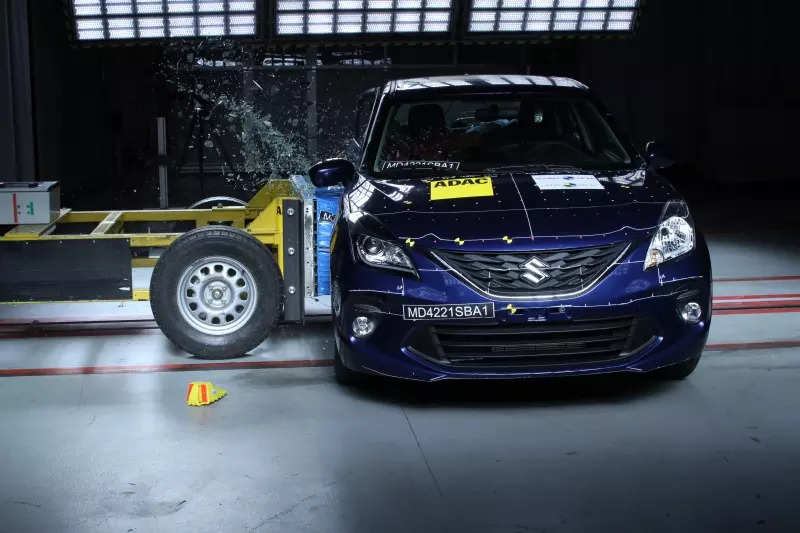
India’s largest carmaker Maruti Suzuki’s bestselling premium hatchback Baleno has scored a disappointing zero star for safety in the recently conducted Latin NCAP crash tests.
It follows a similar rating for Suzuki’s other equally successful hatchback Swift which was crash tested in August. Both cars are made in India and exported to Latin American markets and like in India were fitted with dual airbags as standard feature.
The Baleno achieved 20.03 percent in adult occupant box, 17.06 percent in child occupant box, 64.06 percent in pedestrian protection and vulnerable road users box and 6.98 percent in safety assist box. The car demonstrated poor side impact protection and received low whiplash score due to the lack of UN32 proof for rear impact test. It did not have standard side head protection airbags or standard ESC.
“Baleno’s zero star is part of an ongoing disappointment, after the Swift’s zero star rating some weeks ago,” said Alejandro Furas, Secretary General of Latin NCAP. “With specially poor safety performance in adult and child occupant protection on offer from Suzuki as standard to Latin American consumers.”
Global NCAP is yet to test the Baleno in India but most cars from Maruti have received poor scores in the past. Last November, the S Presso small car received zero star in India while Swift got just 2 stars in 2018. The repeated failure of cars from India in getting an acceptable safety score in other parts of the world is a poor advertisement of the country’s vaunted “Make in India” programme.
“It is unfortunate to have another zero stars car from Suzuki, in this case the Baleno model, which in some countries is marketed as” Good, Nice, Baleno”, to which we should add “Low safety”, said Latin NCAP Chairman Stephan Brodziak.
The Baleno is offered in Europe with 6 airbags and ESC as standard while the model in Latin America is not offered with side body and side head airbags (curtain airbags) and ESC as standard. Suzuki refused to test the optional equipment to show its performance which opens the question of the effectiveness of those extra safety elements, NCAP said.
The other car whose crash test results were revealed today was the Toyota Yaris sedan, which is produced in Brazil and Thailand. Equipped with dual airbags and ESC, Yaris also received a poor 1 star rating.
“Latin NCAP calls on Toyota and Suzuki to significantly improve the standard safety equipment on these models as soon as possible and for them to be tested to demonstrate the improvements,” said Furas. “Basic vehicle safety, which is taken for granted in mature markets, is a right that Latin American consumers should claim without having to pay extra for them.”
“As for the Toyota Yaris is very disappointing that it has obtained only one star, as this car is so popular in our region, with a very high market penetration. In previous tests Toyota had a very good safety performance record, which is inevitably stained when designing with such low safety of one of the most accessible vehicles for consumers that the brand has, due to the risk involved in having a one star vehicle circulating on the streets of our region,” said Brodziak. “We make an energetic call for both Suzuki and Toyota to be committed to the safety of the consumers in Latin America and the Caribbean, we do not want more zero and one stars cars circulating in our countries.”
Also Read:

















